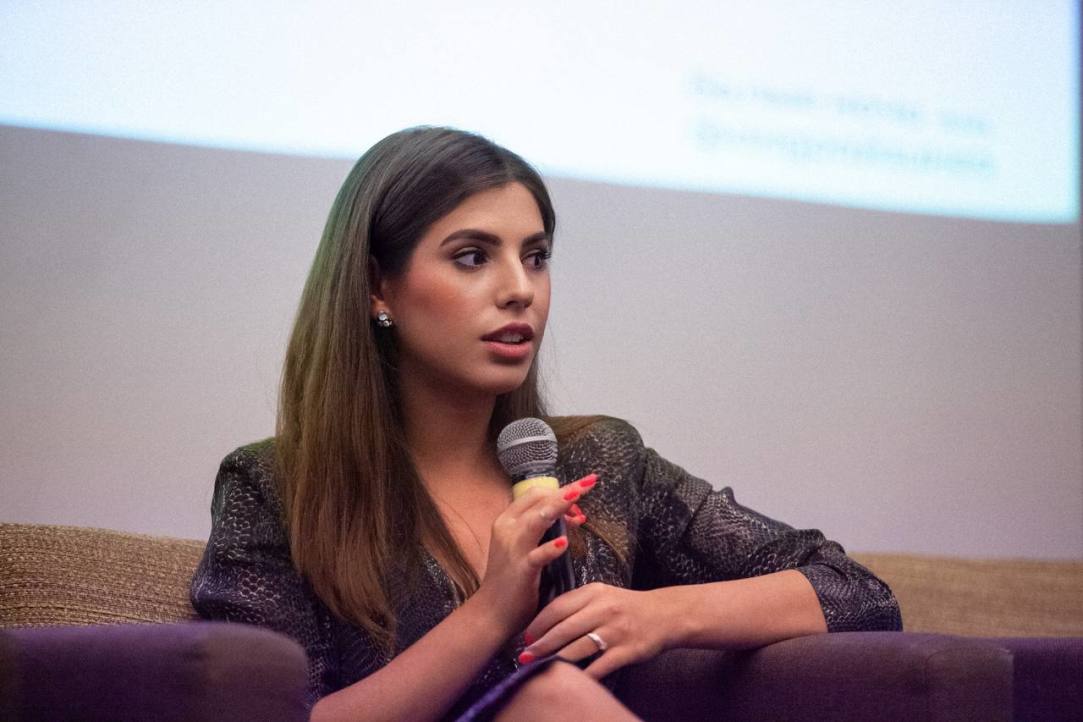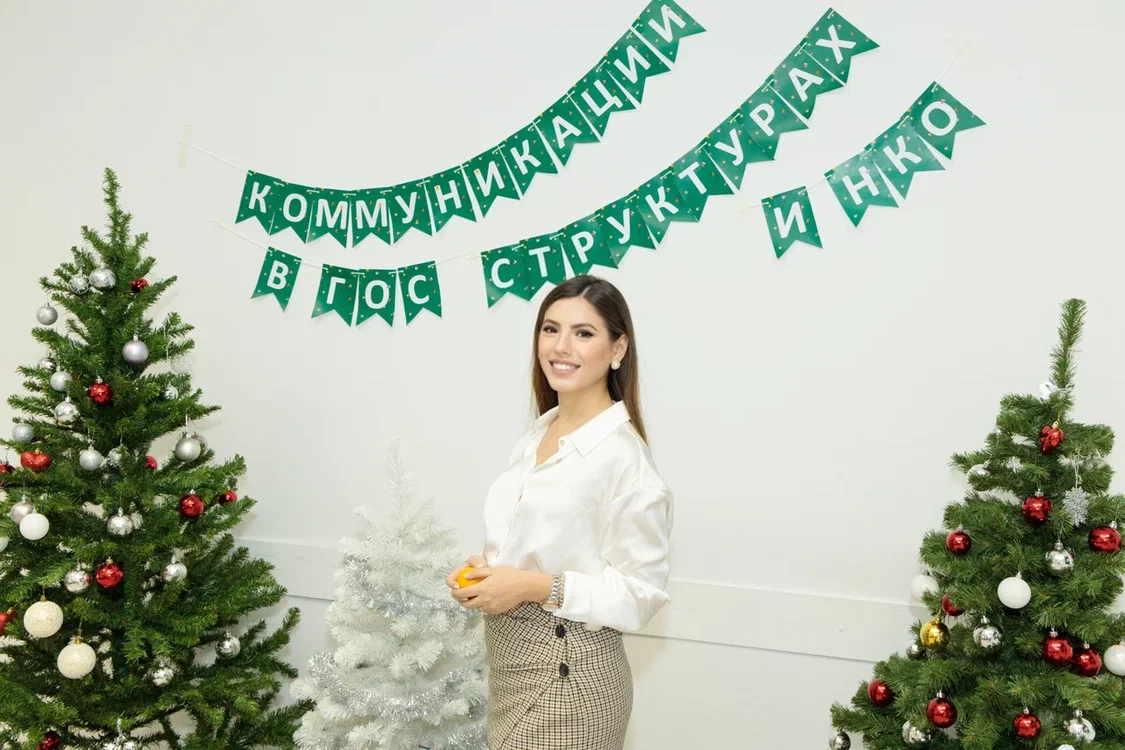‘Very Little Money Can Solve Very Big Problems’

Mariam Margaryan, a graduate of the HSE University Economics and Statistics programme, HSE University lecturer, and the Fundraising Director of the Friends Foundation, says that she got into philanthropy by accident. As a student of the HSE Faculty of Economic Sciences, she planned to forge a career in a large consulting company. She spoke of her path to NGOs, her favourite social projects and her work at the University in an interview with the HSE University Project-Based Learning Laboratory of Economic Journalism.
Multifunctional Soldier
‘As a student of the Faculty of Economic Sciences, I saw my potential career quite differently—in consulting, within the ‘Big Four’. But during my third year, I found a job as a financial manager at ‘Takie Dela’ website (media of the ‘Need for Help’ foundation), and this work could be combined with my studies. After a while, I realised how close their values were to mine and how useful I could really be,’ Mariam Margaryan says.
Initially she didn’t think it was worth building a career in the charity sector straight away, it seemed preferable to gain experience elsewhere and then circle back. But Anna Semenova, the former head of the ‘Need for Help’ foundation, suggested that she could learn a lot by working at an NGO straight away, because any employee of a charity is a ‘multifunctional soldier’. ‘With limited resources, such a person can do a lot of things,’ Mariam Margaryan notes. At that point she decided she was ready to stay and build a career at the ‘Need for Help’ foundation.
But Mariam was not new to charity. ‘It seems that in all my school essays, when I was free to choose the topic, I’d written about charity. All of the courses I’d selected were in one way or another related to social economics and how the ‘social economy’ works in principle. My graduation thesis is on this exact topic,’ she admits. While at HSE University, Mariam was a member of the Armenian Club and organised charity events, such as a Donor Day with the involvement of local blood banks.
She also had experience of supporting social initiatives in Armenia: for example, Mariam made posts on social media and helped to involve more people in fundraising for the ‘Zartnir’ project (translated from Armenian as ‘Awaken’). The goal of this project is to improve the general level of education in Armenian schools, with a focus on the regions. ‘Here, in Russia, we help these projects exist financially, with the help of the community, experts and the media—with the audience that we have,’ she explained.
‘It's not the Sum that Matters, but the Number of People’
Mariam Margaryan believes that everyone can be involved in charity. For her personally, this was confirmed by the ‘Ruble a Day’ campaign—a large-scale charity campaign by the ‘Need for Help’ foundation, in which people, including well-known media personalities, posted videos on social networks appealing to people to donate one ruble a day to one or more foundations.

The HSE University graduate participated in the launch and implementation of the campaign in 2018, and in the first week alone, she managed to raise more than 10 million rubles. ‘But it is not the sum that is important, it’s the number of people who signed up—it involved tens of thousands of people. They were attracted by the very idea that you can solve very big problems with very little money,’ emphasizes Mariam Margaryan.
According to her, ‘there is still a myth that charity is the domain of rich people. ‘Like we said, any money is money if you're willing to help,’ she stresses. And it works.
Mariam Margaryan considers her favourite social project to be the interactive film ‘Everything is Complicated’, where the main character was born HIV-positive and builds her life with this in mind. The film was made for a young audience, and the main task is to find answers to unlikely questions: can a person with this condition have a healthy child? Is it possible to drink from the same glass as them? ‘We realised from the feedback that the film had helped teens understand the topic. The unexpected thing for us was that, thanks to this, HIV-positive people understood how they can talk to their loved ones about their status,’shares Mariam.
‘First the Teacher Gives you Grades, then You Do’
When she was at secondary school, her economics teacher, who also worked at HSE University, helped her make the decision to enter HSE University. She found friends who had either already entered or were planning to enter HSE University. ‘Listening to how the University works made me want to be there,’ she admits.
One very important thing was the way the learning process was organised: ‘They always warned us in advance if any class was cancelled. There were no oral tests either, only written ones—if you don't agree with something, you can appeal,’ Mariam Margaryan says. She also considers it an advantage that learning goes both ways: ‘First the teacher gives you grades, and then you give them grades, as part of the student evaluation of their teaching.’
Having already launched her own educational course at HSE University, Mariam was convinced that the results of teaching quality assessments (TQA) really do factor into personal decisions and the formation of course curricula. For her, the first TQA was most nerve-wracking. Despite this, Mariam was pleased with the comments she received: they helped make the course better.

Mariam Margaryan now teaches a course entitled ‘Communication Management in NGOs’ at HSE University. According to her, there is still some lingering distrust of such organisations in Russia, and people's loyalty and reaction largely depends on, for example, the design of the website or in which media the project is being promoted.
‘In the course, we talk about both the technical and legal intricacies, and how to involve ambassadors and opinion leaders in communications,’ she shared.
The ideal course, according to Mariam, should be first and foremost interesting and provide theory and practice in equal measure. She would like to fine-tune hers to make it more balanced. ‘The difficulty now is that the group is very uneven: there are people who are already working in the profession, and there are those who graduated just yesterday with a bachelor's degree in another speciality, and probably don't know even the simplest acronyms. The question is how to make sure that for some people the course is not useless, and for others it is understandable,’ Mariam admits.
‘Teaching just for the sake of teaching is a stupid idea. I want everyone to feel comfortable and have fun, primarily,’ she emphasises.
Mariam Margaryan
Visiting Lecturer, School of Integrated Communications
See also:
Feel the Holiday Spirit at HSE’s New Year's Charity Event
In the run-up to the New Year, HSE University is participating in the Wish Tree charitable initiative for the third time. The project brings together people eager to do good deeds. Students, professors, and staff can pick a bauble from the tree in the atrium of the Pokrovka campus and fulfil a child’s dream.
Service Learning Programme Launched at Russia’s Universities
On September 5th, which is the International Day of Charity, the Service Learning programme was launched at many of the country’s universities. HSE University hosted a meeting with deputy deans and faculty project managers, followed by a large NGO fair, where both students and HSE University staff got to know more about partner NGOs and planned further joint projects.
To See by Touch: HSE Students Raise Funds for the Project ‘The World Through the Eyes of the Blind’
Students of the Bachelor's programme in Business Administration at HSE Nizhny Novgorod are implementing ‘The World Through the Eyes of the Blind’ public initiative as part of a project seminar. The students are holding exhibitions and workshops to raise funds through the crowdfunding platform Planeta.ru in order to install a radio system in a boarding school for blind and visually impaired students and to draw attention to the problems of people with visual disabilities.
Road of Kindness: HSE University Students to Hold Charity Run in Moscow and Nizhny Novgorod
On September 4, the Road of Kindness charity run will take place in Gorky Park. The event is timed to coincide with the 30th anniversary of HSE University, and was organised by the university’s students in cooperation with the Student Initiative Support Centre and the Centre for Leadership and Volunteer Work. The event is also being held in Nizhny Novgorod.
Charity Festival Held by HSE University
HSE University Student Development Office held its traditional Charity Xmas festival from December 1th to 5th. The event was open to HSE University students, staff and graduates, and anybody else who wished to attend. This year for the first time, it was online, but nonetheless brought together a large number of guests and speakers. The HSE News Service spoke about volunteering and charity in the Coronavirus era.
HSE Students Work Miracles Using Technology
Students of the HSE Bachelor's programme in Business Informatics have developed an eye-catching, user-friendly website for the ‘Soulful Bazar’ project, a large-scale charity fair traditionally held in Moscow on the eve of the New Year. This year, the “Charity Tree” New Year celebration will be held on December 22 at the Expocentre off the Krasnopresnenskaya embankment.
‘By Volunteering, I Am Helping to Make the World at Least a Little Bit of a Better Place’
In honour of International Volunteer Day, which was celebrated on December 6, HSE News Service spoke with HSE student organization leaders about their volunteer work. It turns out that HSE students are very active members of their communities: from painting with children in local orphanages to helping out at animal shelters, students participate in a wide range of volunteer efforts—and have fun while doing it.
Charity Xmas Festival Brings Together 13 Charity Organizations at HSE University
A New Year's fair, information about non-commercial organisations, masterclasses, lectures and an obstacle demonstration with a guide dog: just some of the events that occurred as part of HSE’s contribution to the International Day of Charity, which took place at HSE Central atrium on 11 Pokrovsky Boulevard.
Festival Without Borders: HSE’s First Inclusive Festival Takes Place in Moscow
HSE University recently held the ‘Magic World’ inclusive charity festival at Bauman Garden in Moscow. The guests included children from four orphanages sponsored by HSE, as well as anyone else who was interested. The HSE News Service provides a summary of the festival’s activities below.
HSE & adidas: Helping Clean the Planet of Plastic
On June 3, a meeting with Chris Thaller, Head of Creative Projects at Runtastic by adidas and founder of the Parley Foundation, who is involved in a project to gather and recycle oceanic plastic, will take place at HSE University.


